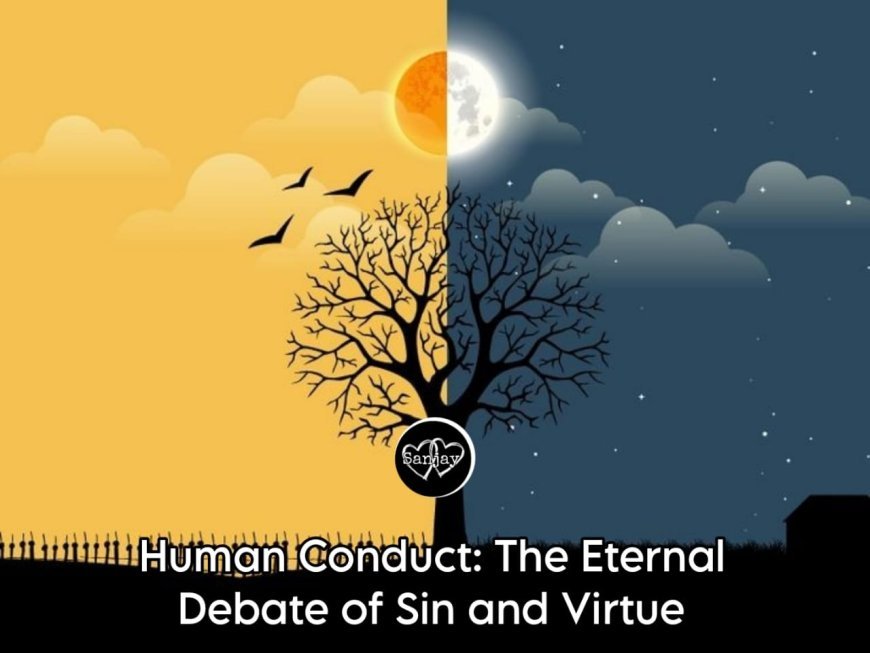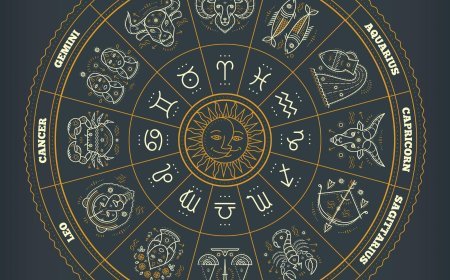Human Conduct: The Eternal Debate of Sin and Virtue

Human conduct has been a subject of deep contemplation for centuries, with philosophers, theologians, and scholars pondering over what constitutes right and wrong. The concepts of sin and virtue are often seen as two opposing forces shaping human behavior, but their definitions remain relative, influenced by time, culture, and individual beliefs. What one society considers a sin may be regarded as an acceptable norm in another, and what one religion views as a virtue might not hold the same weight in another belief system. This raises a fundamental question: Who decides what is sinful and what is virtuous?
The Relativity of Sin and Virtue
Sin and virtue are often dictated by religious doctrines, legal systems, and moral philosophies. However, the definition of these concepts is not absolute. For example:
In some cultures, eating certain foods is considered sinful, while in others, it is a common practice.
In certain societies, polygamy is acceptable, while in others, it is condemned.

A warrior in one era who kills for his king may be seen as a hero, but in another context, he may be considered a criminal.
These examples highlight how the perception of sin and virtue is shaped by context. What remains constant, however, is the intent behind actions. Ethical theories, like those of Kant, argue that morality is based on universal principles, while others, like utilitarianism, suggest that morality is determined by the consequences of actions.
The Consequences of Sin
The repercussions of sinful actions are often believed to manifest in three ways:
Legal Punishment – Many wrongdoings, such as theft, murder, and corruption, lead to legal consequences. Courts and judicial systems act as enforcers of ethical behavior in society.
Social Backlash – Individuals engaging in immoral conduct often face social ostracization, loss of reputation, or diminished trust.
Karmic or Spiritual Consequences – Many religious philosophies suggest that sin leads to negative karma, affecting one’s life and even future reincarnations. Some believe that divine justice prevails, ensuring that wrongdoers eventually suffer for their actions.
Is There a Punishment for Wrongdoing?
Throughout history, societies have enforced punishments for sinful actions, ranging from exile in ancient times to imprisonment in modern legal systems. Religions speak of divine retribution:
Christianity warns of hell as a consequence of sin.
Hinduism and Buddhism suggest that bad karma leads to suffering in future lives.
Islam emphasizes accountability on the Day of Judgment, where sinners face divine punishment.
However, the effectiveness of punishment as a deterrent remains debatable. While fear of consequences may prevent some from committing sins, true morality should stem from self-awareness and ethical consciousness rather than external threats.
The Reward for Righteous Conduct
Just as wrongdoing leads to consequences, virtue often brings rewards. These rewards manifest in different forms:
Personal Peace and Happiness – People who live by ethical principles often experience inner peace, satisfaction, and self-respect.
Social Respect and Trust – Honesty, kindness, and integrity lead to strong relationships and a good reputation in society.

Spiritual Growth – Many believe that righteous living brings spiritual elevation, enlightenment, or a place in paradise.
In Hindu philosophy, dharma (righteousness) is considered the path to moksha (liberation). Christianity speaks of heavenly rewards, while Islam and Buddhism also promise eternal bliss for the virtuous.
Conclusion: The True Measure of Human Conduct
Ultimately, human conduct is shaped by a combination of law, social norms, personal conscience, and spiritual beliefs. While sin and virtue are relative in their definitions, they have real consequences that impact individuals and societies. The key to moral living lies not in fear of punishment or expectation of rewards but in cultivating a sense of ethics, empathy, and wisdom. A truly righteous person does good not for external validation but because they understand that virtue is its own reward.
Thus, the real question is not who decides sin and virtue but how individuals choose to live their lives with honesty, kindness, and responsibility.
Sanjay Pattnayak
Sundargarh












































